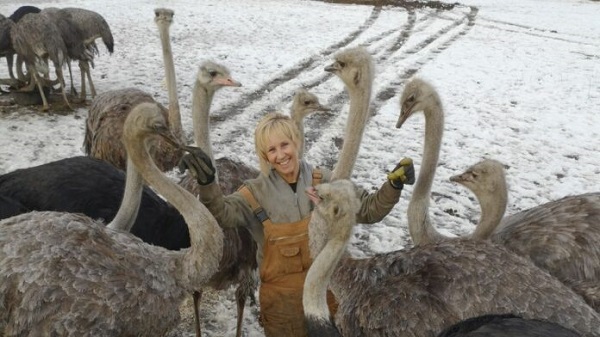Education
School board trustees should embrace genuine diversity and avoid unnecessary legal fights
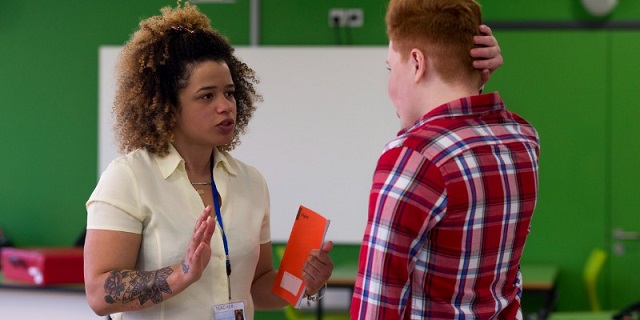
From the Fraser Institute
Too many Canadian school boards are getting sidetracked by unnecessary legal battles rather than focusing on educating students.
Case in point, Carolyn Burjoski, a former teacher in the Waterloo Region District School Board (WRDSB), recently won a decisive legal victory when Justice James Ramsay rejected WRDSB’s attempt to quash Burjoski’s defamation lawsuit and awarded her $30,000 in legal fees.
Burjoski had sued her former employer because the board chair publicly accused her of transphobic behaviour for raising concerns during a board meeting about the sexualized content in a number of school library books. His public attacks on Burjoski exposed the school board to a defamation lawsuit.
In his decision, Justice Ramsay found that the WRDSB chair “acted with malice or at least a reckless disregard for the truth.” Furthermore, Ramsay explained, nothing Burjoski said during the meeting could reasonably be described as transphobic. Given these facts, it comes as little surprise that the judge ruled decisively in Burjoski’s favour.
Things could have been handled much better by the board. Had the trustees stayed focused on education, they likely would not have gotten sidetracked by Burjoski’s comments. They could have simply thanked Burjoski for her input then gotten back to work on education policy. Instead, the board chair picked a fight with one of his own teachers and led his fellow trustees into a losing legal battle. No one can seriously think this was in the best interest of students, particularly since school taxes were spent on legal fees rather than classroom resources.
Sadly, WRDSB is far from the only school board where trustees are distracted by non-educational issues. In Winnipeg’s Louis Riel School Board, trustee Francine Champagne was suspended three times in one year for making controversial social media posts and failing to submit paperwork. The board even filed a legal application to have Champagne removed from office for allegedly violating the Public Schools Act. However, Champagne resigned before the court case began, which was fortunate for the board, since it no doubt saved them considerable money in legal fees.
Parents and other taxpayers don’t elect school trustees just so their hard-earned tax dollars can be squandered on legal fees. Getting into unnecessary legal fights is a bad idea for any school board.
Fortunately, it’s not difficult for school boards to stay out of court. Refrain from defaming employees who make presentations at public meetings, stay focused on educational basics, and allow for diversity of thought on controversial issues. A board that does these things will save money in legal fees, and have a better learning environment for students.
Besides, there are real issues to be addressed in public education. For example, data from the Programme for Student Assessment (PISA) shows that academic achievement is on the decline across Canada, particularly in reading and math. If students don’t learn these fundamental skills in school, not much else that happens there will matter. Improving classroom instruction should be a top priority for every school board.
Trustees would also be wise to crack down on the growing incidents of violence in many schools. Empowering teachers and principals to remove persistently disruptive students from the classroom is essential. Teachers must know that their employers have their backs when dealing with tough situations. Safe and orderly classrooms are a prerequisite to student learning.
And when controversial issues do come up during board meetings, trustees should take a measured approach and acknowledge that Canadians (including many of their own employees) hold a variety of views on topics such as how much gender and sexuality content should be in library books accessible to children. There’s no need to force everyone into the same mold.
If trustees are serious about promoting diversity, they must remember that this includes diversity of thought, not just diversity of appearance. Genuine diversity means that everyone, students and teachers alike, are free to express different opinions without fear of negative repercussions.
Education suffers when school trustees lose sight of their primary mission. The lessons learned by WRDSB and other embattled school boards should be a clear sign to trustees across Canada—stay focused on educating students.
Author:
Red Deer
Red Deer teacher one of 7 in Canada to receive National Award for Teaching Excellence in Physical Education

Scott Luck has been named as one of just seven recipients across Canada for the National Award for Teaching Excellence in Physical and Health Education presented by Physical and Health Education Canada
Whether it’s leading high-energy gym classes or helping students discover their passion for physical activity, PhysEd Specialist at École Central Middle Scott Luck has always focused on getting kids moving – and now, he’s being recognized for his efforts on a national level.
Scott has been named as one of just seven recipients across Canada for the National Award for Teaching Excellence in Physical and Health Education presented by Physical and Health Education Canada. The award honours exceptional teaching and leadership in promoting wellness and physical literacy in schools.
“I didn’t know that I was being nominated – I was extremely surprised when I was told I was a recipient,” said Scott. “I just go about doing my day-to-day and for others to consider me in that type of category is a big honour.”
While he had not met the other recipients before the awards ceremony, Scott said he was humbled to be in their company.
“To be grouped together with the other recipients is such an honour. They are all amazing individuals who do amazing things,” he said.
Scott’s journey to education wasn’t typical. Initially being accepted into a combined PhysEd and Education degree right out of high school, he was steered away from the field. Years later in his 20s, he returned to his calling and earned his After Degree in Education from the University of Alberta. He landed his first teaching job at the age of 28.
He began his career in Edmonton and quickly came to Red Deer teaching at Hunting Hills High School before joining École Central Middle, where he’s spent the past eight years helping students discover the joy of movement.
“I love being active. I love seeing kids be active, and figure out what they are good at. It’s extremely rewarding,” said Scott.
He believes physical and mental wellness are key to student success. “In order for a student to excel academically, they have to be well. Wellness for me is all about the balance between being physically active, mentally well, and the pursuit of happiness,” he said.
Amanda Wilson, Principal at École Central Middle, said Scott is an exceptional Phys Ed teacher who creates inclusive, high-quality programs that cater to widely diverse student needs.
“He adapts lessons using translation tools, tactile clues, auditory signals, and specialized equipment, ensuring all students, regardless of ability or challenges, can participate and experience success,” she said. “Scott goes above and beyond regularly for his students and for our school in the classroom as well as with extracurricular activities. He is instilling a lifelong love of physical activity, and transforming his students’ lives with his dedication and creativity and we are incredibly fortunate to have him at CMS.”
Aristotle Foundation
The University of Saskatchewan is on an ideological mission
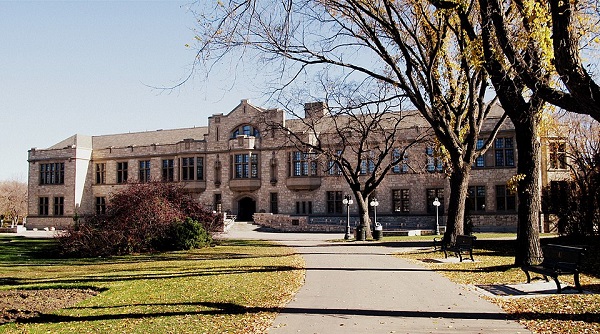
By Peter MacKinnon
The program is part of an ideological crusade within our universities, one that includes identity-based admissions and faculty appointments, and discourages those who differ from speaking out or taking issue with its direction.
It needs to end
I must disclose my background here; I was employed by the University of Saskatchewan for 40 years including 13 years as president. The institution’s distinctive origins combined the development of liberal education with a responsibility to build the province’s agricultural industry, and it did the latter with world-class agricultural programs and research institutes, and with faculty and students of many backgrounds from around the globe.
Now, we are told, the academic personnel in this worldly environment require mandatory training on racism: an Anti-Racism/Anti-Oppression and Unconscious Bias Faculty Development Program. It is compulsory; those who decline its offerings will be shut out of collegial processes previously thought to be their right as tenured faculty.
It was earlier reported that the program emerged from collective bargaining at the initiative of the university’s faculty union; if so, this does not relieve the administration from responsibility; it signed the collective agreement.
“Program” is a euphemism. It is a propaganda module in which scholarly expertise and balance will not be found. It does not appear that the instructor has a university academic post and the program’s ideological hue is revealed in the two required readings, one by Idle No More co-founder Sheelah McLean whose theme is that the success of Saskatchewan’s white people is built on “150 years of racist, sexist and homophobic colonial practices.”
The second is by five “racialized” faculty who claim that Canadian university systems are rigged to privilege white people. Dissent, contrary views or even nuance are neither expected nor tolerated here. Opinions that are different are not on the reading list.
One participant, a law professor, was invited to leave after 30 minutes because he did not lend his voice to its purpose and orientation; he revealed that he was present because it was required. The purpose of the program is indoctrination and there is no room for dissent.
The program is part of an ideological crusade within our universities, one that includes identity-based admissions and faculty appointments, and discourages those who differ from speaking out or taking issue with its direction.
It is not present to the same degree in all of these institutions, but it is visible in most and prominent in many. It disparages merit, distorts our history and rests on the proposition that a white majority population has perpetrated a wide and pervasive racist agenda against others. It takes its conclusions as self-evident and not requiring evidence. It is authoritarian and intolerant, and should have no place in institutions committed to excellence and the search for truth.
The question, of course, is what is to be done. There is a view that “this too shall pass;” it is a fad that will recede in time.
But we must note, these are public institutions supported by tax dollars, and by the contributions of time and money by alumni and supporters. We should not tolerate their politicization and sidetracking of the academic mission in favour of the ideology on display here. The pushback should begin with governments and extend to others who care about these vital institutions.
But first the ideology must be recognized. There is no public uproar and little clamour from within the institutions; dissenting professors and students fear that negative professional and personal repercussions may follow. University-governing bodies stand down or away, not wanting to be involved in controversy. Resistance must come from outside the institutions: governments must insist that the propaganda must end, and they should be joined by alumni, supporters and the general public. The credibility of our universities depends on their willingness to say no.
Peter MacKinnon has served as president of three Canadian universities and is a senior fellow at the Aristotle Foundation for Public Policy. Photo: WikiCommons
-

 Business2 days ago
Business2 days agoCanada drops almost all retaliatory tariffs on U.S.
-
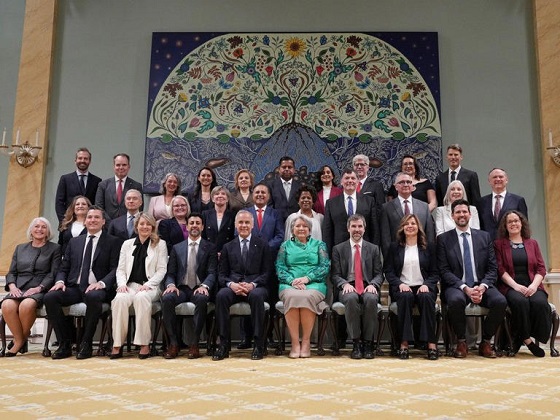
 Business2 days ago
Business2 days agoFrom Gregor Robertson to Sean Fraser to Steven Guilbeault, Mark Carney’s Team ‘As Bad A Start As It Can Get’
-

 Business2 days ago
Business2 days agoCanada remains in neutral while the world moves at warp speed
-
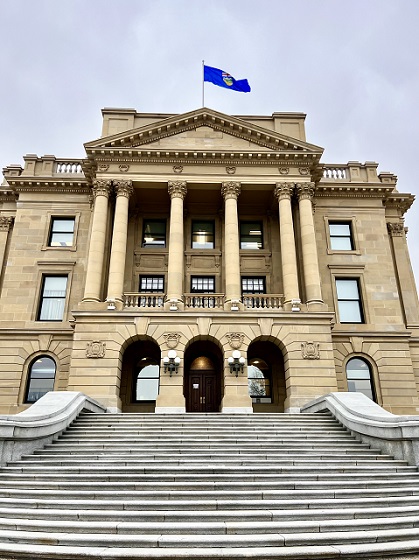
 Alberta1 day ago
Alberta1 day agoAlberta Cabinet shuffle reflects new ministries. Adriana LaGrange in charge of “health care refocusing”
-

 Business2 days ago
Business2 days agoCanadian airline WestJet ordered to compensate employee who refused the COVID jab
-

 Daily Caller22 hours ago
Daily Caller22 hours agoTrump Reacts To James Comey’s ‘8647’ Post
-

 Economy15 hours ago
Economy15 hours agoThe proof is in. Housing is more unaffordable than ever
-

 Daily Caller2 days ago
Daily Caller2 days agoGain of Function Advocate Now Has Keys To Fauci’s Old Agency




